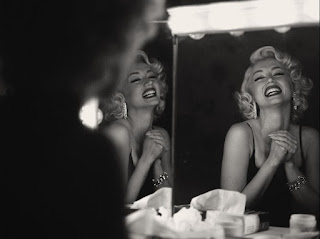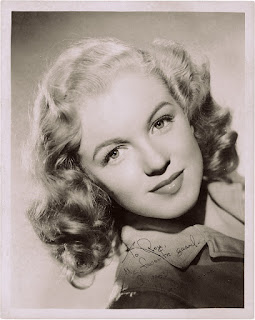'Success is what determines the difference between vision and irresponsibility. If I had to define “Newman” in the dictionary, I’d say: “One who tries too hard.”' —Paul Newman
After he made “Winning,” in 1969, a movie about a race-car driver, for which he was paid 1.1 million dollars, Paul Newman took up auto racing, and he got very good at it. He is in the Guinness Book of Records as the oldest person to win a professionally sanctioned race—the Rolex 24 Hours at Daytona. He was seventy. He attributed his success as a driver, too, to persistence. Although Paul Newman made it onto Richard Nixon’s “enemies list,” a point of pride. But socially he was, in many respects, a square. He once described himself as “an emotional Republican.” His insecurity goes all the way back to childhood. “I got no emotional support from anyone,” he said. He distrusted his mother and believed that his father thought he was a loser. (His father died in 1950, before Newman had had any professional recognition.) He told Stern that, as a teen-ager, he was a “lightweight.” “I wasn’t naturally anything,” he said. “I wasn’t a lover. I wasn’t an athlete. I wasn’t a leader.” He became involved in theatre at Kenyon College, which he attended after being discharged from the Navy, but he claimed that he “never enjoyed acting, never enjoyed going out there and doing it. . . I never regarded my performances as real successes; they were just something that was done, nothing more important than someone working hard and getting an A in political science.” He said essentially the same thing about his early acting career in New York: “I never had a sense of talent because I was always a follower, following someone else with stuff that I basically interpreted and did not really create.”
Newman got into acting, he claimed, to avoid having to take over the family business. “I was running away from something. I wasn’t running towards.” Newman attributed some of his success as an actor to luck—the death of James Dean in a car crash opened up some big roles for him—and the rest to perseverance. He thought that performing came much more easily to other people—for example, to his wife. Acting is like sex, she once said. You should do it, not talk about it. “I was a failure as an adulterer,” Newman told Stern. It’s not clear what counts as a success in that field. The affair with Joanne made him wretched, and it lasted in secret for five years. Only an extra-marital affair is known, with a minor Hollywood actress turned journalist named Nancy Bacon. It supposedly began while he was making “Butch Cassidy,” seems to have gone on for a year, and got into the tabloids. You won’t find it mentioned in the book, and the funny thing is that Newman still admits he was unfaithful to Jackie at the Actors Studio (before hooking up with Joanne Woodward).
The movie camera loved Paul Newman as it has loved few other leading men, and he made a career out of underacting—just as the actor he was often compared to starting out, Marlon Brando, made a career out of overacting. Newman was part of the generation of male Hollywood stars who replaced Clark Gable, Humphrey Bogart, Jimmy Stewart, and Cary Grant—a generation that included Redford, Warren Beatty, Dustin Hoffman, Steve McQueen, and Sidney Poitier. Along with a fresh crop of screenwriters, directors, and producers, they built the New Hollywood on the ruins of the old studio system. At the Actors Studio, students workshopped scenes, which were then critiqued by Strasberg or by the director Elia Kazan. Newman said that, after getting ripped apart for one of his performances, he mostly observed. He discovered, he said, that he was “primarily a cerebral actor.” He had to calculate, not emote, because he felt blocked off from his own emotions. He believed that he did not have an inner well of feeling to draw on. What this meant, though, was that he was an Adlerian.
Due to his Method training, Newman needed to understand a character in order to play him. That was the Method that worked for him. Many actors in the New Hollywood were trained by Adler or by Strasberg: Karl Malden, Julie Harris, Warren Beatty, Montgomery Clift, Patricia Neal, Eli Wallach, Rod Steiger, Cloris Leachman... And Brando, though he trained with Adler, dropped in on Actors Studio workshops. It’s hard to credit Newman’s claim that when he entered the Actors Studio he realized that he was emotionally “anesthetized.” He felt passion (for Joanne); he felt guilt (about Jackie); he felt rejection (by his parents). “There is a line of sadness that permeates so much of his early adulthood,” David Rosenthal said. “This is a guy who is not comfortable in his own skin, and who was very obsessive about things that went wrong.” Even so, Newman himself seemed to believe there were limits on how much he could truly reveal to other people. As he says in the book, whether audiences believed he was Hud or Fast Eddie or Butch Cassidy, that was all just “The damage for me has come when I’ve realized what people were clamoring for was not me. It was characters invented by writers. It was the wit and ability of the authors, the wit and ability of the people who did the exploitation and selling, that had the appeal. What the public was demanding in no way resembled the decoration, let alone the orphan. Do people think that I’m William Faulkner’s Ben Quick? Or Butch Cassidy? Or Frank Galvin in The Verdict? Or any of the other parts I’ve played? It's just a shell that’s photographed onscreen, chased by the fans and garnering all the glory. While whoever is really inside me, the orphaned core, stays unexplored, uncomfortable and unknown.”
“Smiling for the cameras is a smile that doesn’t come from anywhere except a command; there’s no mirth in it. When Joanne and I have been at Cannes, for example, walking up this flight of stairs with a 15-foot-wide red carpet and having that music from Star Wars or whatever the hell it is at decibels that fry your eardrums. Between the bathroom and the breakfast room, every day when you come down from your shower, you could start your day with the f-cking fanfares and flashbulbs going off. The dichotomy is that it is a dream and a nightmare at the same time. When Joanne and I went to Paris to shoot a few scenes of Mr. and Mrs. Bridge there were photographers at the airport, and Joanne said to me: “Don’t be a jerk. Pose for them and then they’ll leave us alone.” So you agree to stand there and smile for a minute or two, hold your wife’s arm, etc. and you tell them, “I’ll see you, goodbye.” Then you walk to your car and about two-thirds of them follow and do exactly what you thought you were getting away from. They honor nothing, and they even chase the car. We pull up to the Ritz, and the same bunch of photographers are there. What was the advantage of my posing at the airport? I’m now in an absolute fury and I head into the hotel manager’s office and say, “You’ve got to give us some way to get in and out of here. I need a back door that we can use in the morning.” Especially because once I actually get away from the Ritz, I can put on a baseball cap and no one will know me; Joanne and I can go wherever we want. By now I’m using foul language with the Ritz staff: “You make those f-cking guys leave us alone!” They finally showed us an old service elevator that had a sort of French-doors-type window that you can get out of that lands you in a backstreet behind the hotel. We were game. So Joanne and I get up the next day, ready to escape, and we noticed there wasn’t a single photographer in sight at the entrance. So after my terrible outburst, I felt like such a schmuck.
It would make my life a lot easier if whenever someone stopped me on the street and asked, “Ooh, let me take your picture,” I said OK. But that would draw another 12 people over, and that would draw some more people, and you stand there signing autographs while politely asking them about their mother and father. If I could do that, it would be terrific. I’d feel a lot better at the end of the day.I wish I could, but I can’t. But I also wish I could ski. And I wish I could play tennis well. I wish I could do lots of things, but I can’t—and that doesn’t make me a bad person. Here are two stories that illustrate what I’m talking about.
I had strongly supported Jimmy Carter’s 1976 campaign, and in the early part of his presidency I was appointed one of the U.S. representatives to the U.N.’s disarmament conference. One afternoon I was visiting the White House with some acquaintances of mine from the National Security Council. I was walking down a hallway when I literally bumped into the President. “Why don’t you come up with me to the Oval Office?” Carter asked. I followed him upstairs, and let me tell you, what transpired was pretty uncomfortable. I’m not very at ease around people with power, never have been. But while I wanted to know why he’d recently decided not to address the U.N. himself on this issue, each time I raised the subject, all the President wanted to know was one thing: how movies were made.
Flash forward to around 1982. By then, I was deeply involved in car racing, truly loving that it was a world away from the film business and Hollywood. I had flown out to the track in Brainerd, Minn., for a Trans Am race, one of my first professional competitions. It was still a novelty that a movie actor was racing, so not unexpectedly there were photographers everywhere. As we were all finally just about ready to begin, the track marshals began clearing everybody away from the cars and racers. But just as it was getting down to “Gentlemen, start your engines,” there was one photographer who just kept clicking off shots of me, retreating for a minute, then darting back on the track like a bird. This is when a driver really wants to center himself, and here’s this photographer sticking his camera almost up my nose, clicking, running off, darting back on, and finally disappearing. After the race was over and I was done being interviewed and everyone was packing up, I spotted the photographer and said, “I really want to ask you something. Why was it that you wanted to shoot me so badly that you had to keep coming back and irritate me, invade my space, and just do one more thing to make your presence felt?” “You really want to know?” the photographer answered. “Yes, I really want to know.” “Okay,” he said. “Because I thought I might get the last picture of you alive.” —Excerpted from "The Extraordinary Life of an Ordinary Man", compiled and edited by David Rosenthal. Copyright © 2022 by Joanne Woodward Newman.
.jpg)






.jpg)










.jpg)












.jpg)















.jpg)















